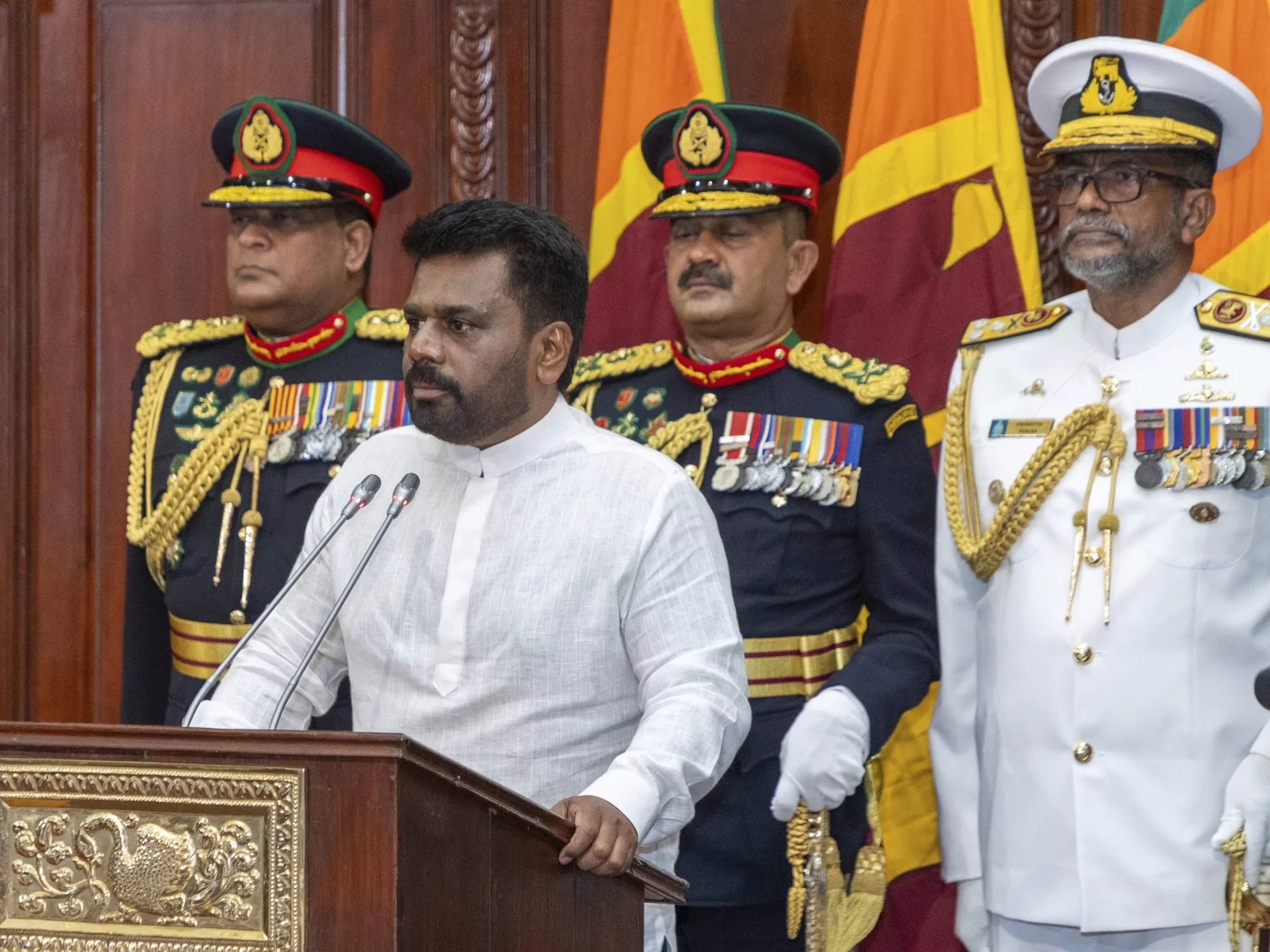Marxist-leaning politician says he understands the complex challenges facing Sri Lanka and will work to meet people’s hopes.
Marxist-leaning politician Anura Kumara Dissanayake has taken his oath as Sri Lanka’s new president after he was declared the winner of Saturday’s election.
Dissanayake took his oath at the Presidential Secretariat building in Colombo early Monday morning.
He said he understood the complexity of the problems facing Sri Lanka and would work hard to realise people’s hopes and win the confidence of all Sri Lankans.
“I will do my best to fully restore the people’s confidence in politicians,” Dissanayake said after taking the oath.
“I am not a conjurer, I am not a magician,” he added. “There are things I know and things I don’t know, but I will seek the best advice and do my best. For that, I need the support of everyone.”
The 55-year-old leader of the People’s Liberation Front (JVP) party and the National People’s Power (NPP) alliance won the presidency with 42.31 percent of the vote, according to the Election Commission of Sri Lanka.
Dissanayake ran for office on a promise to tackle corruption and clean up politics in the South Asian island nation.
The election was the first since mass protests forced Gotabaya Rajapaksa from office amid an economic collapse in 2022.
The situation has now stabilised with the support of the International Monetary Fund, but the strict austerity measures brought severe hardship to many people and voters punished Ranil Wickremesinghe, who became president after Rajapksa fled, at the ballot box.
The JVP led two rebellions in the 1970s and 1980s that killed more than 80,000 people before it renounced violence.
Dissanyake was a JVP student leader during the second insurrection and has described how one of his teachers sheltered him to save him from government-backed death squads that killed party activists.
The party remained a peripheral player in Sri Lankan politics and won less than four percent of the vote during the last parliamentary elections in 2020.
Dissanayake counts Marxist revolutionary Che Guevara among his heroes.
Since his rise to popularity, he has softened some policies, saying he believes in an open economy and is not totally opposed to privatisation.
